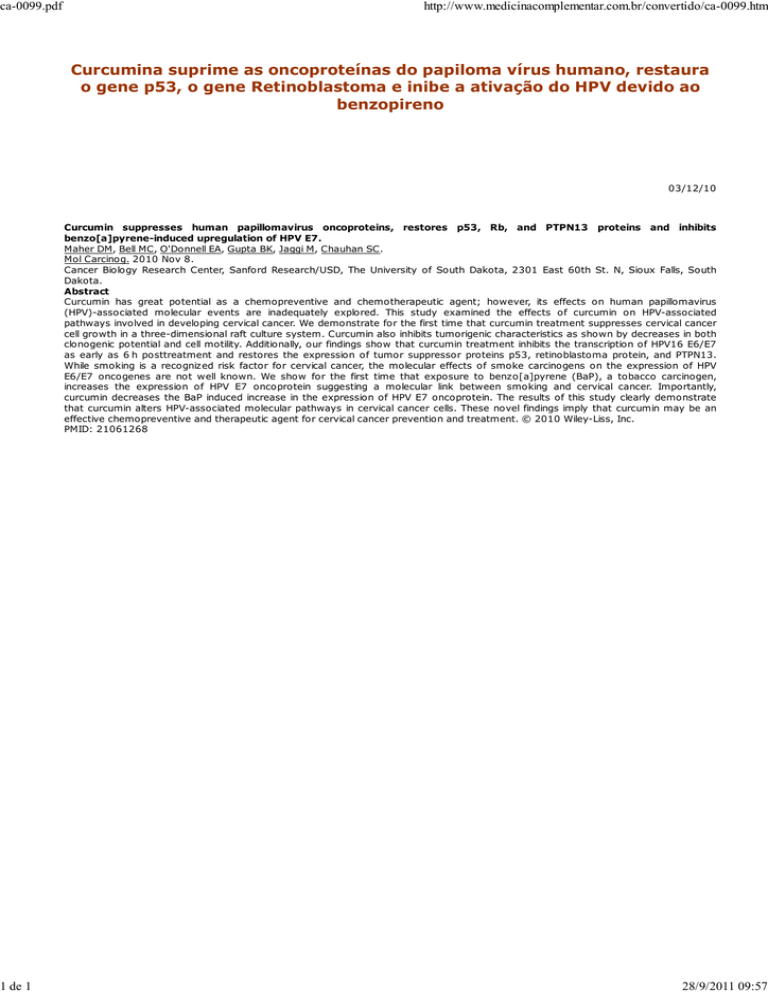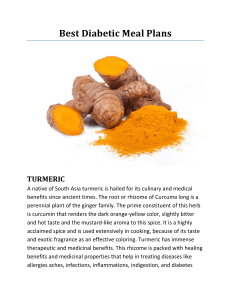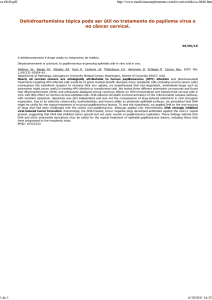
ca-0099.pdf
1 de 1
http://www.medicinacomplementar.com.br/convertido/ca-0099.htm
Curcumina suprime as oncoproteínas do papiloma vírus humano, restaura
o gene p53, o gene Retinoblastoma e inibe a ativação do HPV devido ao
benzopireno
03/12/10
Curcumin suppresses human papillomavirus oncoproteins, restores p53, Rb, and PTPN13 proteins and inhibits
benzo[a]pyrene-induced upregulation of HPV E7.
Maher DM, Bell MC, O'Donnell EA, Gupta BK, Jaggi M, Chauhan SC.
Mol Carcinog. 2010 Nov 8.
Cancer Biology Research Center, Sanford Research/USD, The University of South Dakota, 2301 East 60th St. N, Sioux Falls, South
Dakota.
Abstract
Curcumin has great potential as a chemopreventive and chemotherapeutic agent; however, its effects on human papillomavirus
(HPV)-associated molecular events are inadequately explored. This study examined the effects of curcumin on HPV-associated
pathways involved in developing cervical cancer. We demonstrate for the first time that curcumin treatment suppresses cervical cancer
cell growth in a three-dimensional raft culture system. Curcumin also inhibits tumorigenic characteristics as shown by decreases in both
clonogenic potential and cell motility. Additionally, our findings show that curcumin treatment inhibits the transcription of HPV16 E6/E7
as early as 6 h posttreatment and restores the expression of tumor suppressor proteins p53, retinoblastoma protein, and PTPN13.
While smoking is a recognized risk factor for cervical cancer, the molecular effects of smoke carcinogens on the expression of HPV
E6/E7 oncogenes are not well known. We show for the first time that exposure to benzo[a]pyrene (BaP), a tobacco carcinogen,
increases the expression of HPV E7 oncoprotein suggesting a molecular link between smoking and cervical cancer. Importantly,
curcumin decreases the BaP induced increase in the expression of HPV E7 oncoprotein. The results of this study clearly demonstrate
that curcumin alters HPV-associated molecular pathways in cervical cancer cells. These novel findings imply that curcumin may be an
effective chemopreventive and therapeutic agent for cervical cancer prevention and treatment. © 2010 Wiley-Liss, Inc.
PMID: 21061268
28/9/2011 09:57




